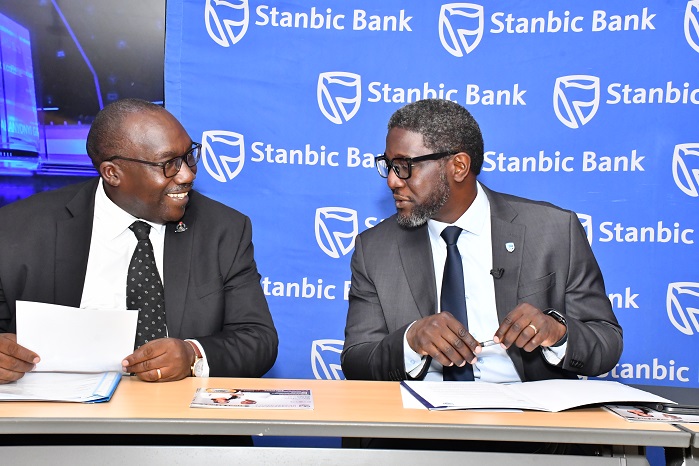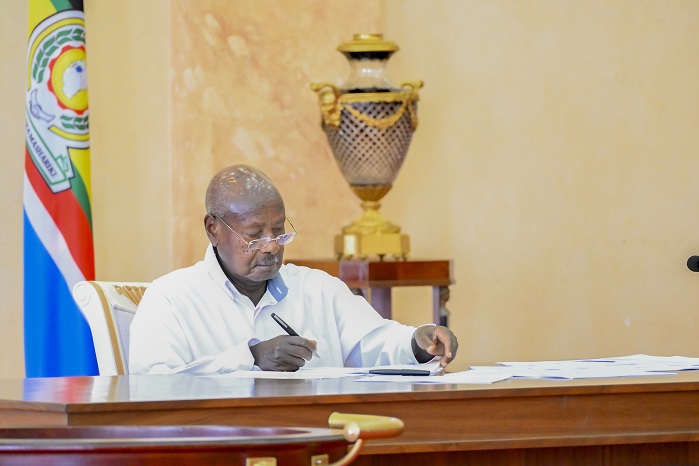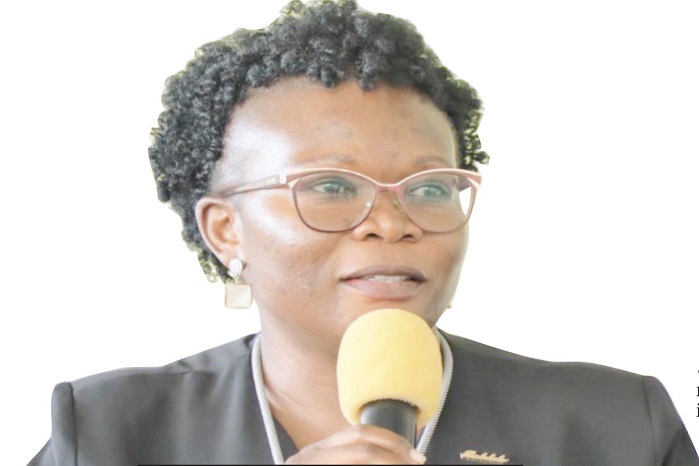
George-Muteekanga-the-Ast.-Commissioner-for-Private-Schools-at-Ministry-of-Education-sharing-light-moments-with-Sam-Mwogeza
George-Muteekanga-the-Ast.-Commissioner-for-Private-Schools-at-Ministry-of-Education-sharing-light-moments-with-Sam-Mwogeza
HABARI DAILY I Kampala, Uganda I Ugandan students have displayed potential to reap big even in the real world of business transactions which involves making either profits or losses.
Stanbic, Uganda’s biggest bank by assets and capitalization, has taken it upon itself to nurture thousands of Ugandan students in the acts of making money.
The National School’s Championship is the flagship Corporate Social Investment for Stanbic Bank, bring together hundreds of students every year to try their hand in virulent areas like that of investment.

Over the years, the competition has helped develop more than 200 successful businesses, highlighting the bank’s commitment to addressing youth unemployment and bridging the gap between education and job creation.
Diana Ondoga, Stanbic’s manager for corporate social investments, said they recently conducted a boot camp, with an aim of changing the learner’s mindset.
“This program seeks to extract what exists in these learners, aged between 13 to 18, and get them ready to be a part of solutions to the challenges in society,” she said in a recent briefing.
She said they received tremendous training in the boot camp. They receive cross cutting, life time skills.
“Some of the skilling areas include the business model canvas, financial literacy, personal development, psychosocial wellness, and we also gave them an opportunity to transform sh50,000 into a profit,” she said, during the ninth edition of the NSC which run under the overall theme ‘Empowering the job creators of tomorrow’ with the 2024 tagline being: ‘Powering Innovation for Job Creation’.
Ondoga said that the best group was able to generate revenues of sh260,000 and a profit of sh210,000 from the sh50 ,000 that was given to them,” she said.
She said they as a result, they teach the learners that something lies within them; that they have what it takes to become people of value in society.
The training revolved around creativity, innovation and entrepreneurial skills.
Francis Karuhanga, the Stanbic’s Holdings Chief Executive said several partners such as the ministry of education, among others, that have chosen to walk with them in the journey of transforming the next generational leaders.”
“To date, the Stanbic National Schools Championship has impacted more than 480,000 learners, teachers and the community through direct and indirect beneficiaries” she said.
He said he wants to see the National Schools Championship touching millions of youths not just thousands, so that more schools both rural and urban undertake the innovation quest.
Hosted by Gayaza High School, the students had the opportunity to interact with mentors through a variety of training sessions including psychosocial/mental health.
They were taught on how to start a small business and build a successful brand. They also learnt how to market their products, the business model canvas; how to structure ideas and understand customer needs.
During the market stimulation activity, students had a chance to display their abilities for drumming up sales.
This year, the competition encompasses four main categories. The first is existing innovations, called the Student Grow Challenge which is for vocational and secondary schools which apply on behalf of their students with ongoing and active innovative projects or businesses.
The Student Spark Challenge, on the other hand is for vocational and secondary schools in Uganda to apply on behalf of their students with innovative projects or business ideas.
Additionary, the AlumGrow Challenge is for secondary and vocational schools that previously participated in the Stanbic NSC boot camp and have started a unique business or social project.
The Teachinnovate for Teachers category targets innovations by teachers at secondary and vocational schools, who are involved in a unique business, social project or innovative teaching approach




